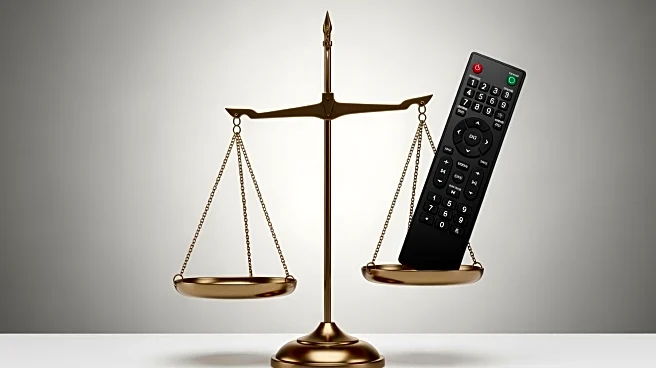What's Happening?
Wendy Osefo, a reality TV personality, and her husband Eddie Osefo have been indicted on 16 counts of fraud in Westminster, Maryland. The charges stem from an alleged false insurance claim following a reported burglary in April 2024. Prosecutors allege that
the couple attempted to claim $450,000 in insurance by falsely reporting stolen items, which were later found to have been purchased and returned for refunds. This legal development has led to Wendy Osefo resigning from her visiting professorship and has affected the scheduling of Bravo's 'Wife Swap: The Real Housewives Edition,' where she was set to appear. The indictment has sparked significant media coverage and public debate, with social media amplifying the controversy.
Why It's Important?
The indictment of Wendy Osefo has significant implications for the reality TV industry and the individuals involved. For Bravo, the network airing 'Wife Swap: The Real Housewives Edition,' the charges present a reputational risk and could affect viewership and advertising revenue. The legal proceedings may also influence public perception of reality TV stars and the authenticity of their portrayed lifestyles. For the Osefo family, the charges could lead to severe legal consequences, including potential jail time and financial penalties. The case highlights the broader issue of insurance fraud and its impact on the legal and entertainment sectors.
What's Next?
As the legal process unfolds, Bravo and other stakeholders will need to decide how to handle Wendy Osefo's involvement in their programming. This could include editing her out of upcoming episodes or delaying the show's release. The legal proceedings will continue to attract media attention, potentially influencing public opinion and the outcome of the case. Observers will be watching for any additional charges or developments that could further complicate the situation for the Osefo family and the network.
Beyond the Headlines
The case raises questions about the ethical responsibilities of reality TV networks in vetting their stars and the potential for legal issues to arise from the portrayal of extravagant lifestyles. It also highlights the role of social media in shaping public narratives and influencing legal proceedings, as viral clips and posts can impact juror perceptions and the broader public discourse.














